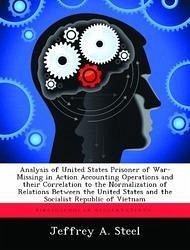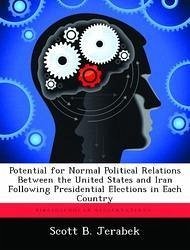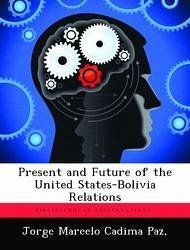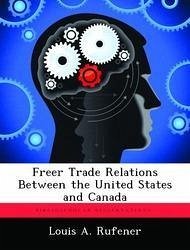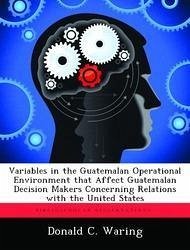
Variables in the Guatemalan Operational Environment That Affect Guatemalan Decision Makers Concerning Relations with the United States
Versandkostenfrei!
Versandfertig in über 4 Wochen
54,99 €
inkl. MwSt.

PAYBACK Punkte
27 °P sammeln!
This study is a historical analysis of variables that affected Guatemalan decision makers concerning their relations with the United States, during the period 1970 to 1985. Each variable is examined, based on the current body of literature, to determine their individual and cumulative effects on the reactions of Guatemalan decision makers to U.S. attempts to influence events in Guatemala. Six important variables were identified: the Guatemalan interaction in the international community; the Guatemalan interaction in the regional community; the Guatemalan economy, interest groups, internal secu...
This study is a historical analysis of variables that affected Guatemalan decision makers concerning their relations with the United States, during the period 1970 to 1985. Each variable is examined, based on the current body of literature, to determine their individual and cumulative effects on the reactions of Guatemalan decision makers to U.S. attempts to influence events in Guatemala. Six important variables were identified: the Guatemalan interaction in the international community; the Guatemalan interaction in the regional community; the Guatemalan economy, interest groups, internal security, and political structure. The study demonstrates that relations between Guatemala and the United States are best, and U.S. influence in Guatemala is enhanced when: both countries exhibit a western oriented, anti-communist foreign policy; communist influence in Central America is reduced and the region is stable; the Guatemalan economy is weak and dependent upon bilateral U.S. assistance; there are internal interest groups in Guatemala capable of challenging the military elite; the level of fighting between Government forces and communist insurgents is low; and the political structure allows greater pluralism. The study concludes that there have been changes in the variables that have exerted pressure on Guatemalan decision makers to improve relations with the U.S., however, the Guatemalan political structure has not changed. An understanding of the variables that have changed, and the collective pressure from the variables exerted on Guatemalan decision makers, may assist the U.S. in influencing changes to the Guatemalan political structure.







